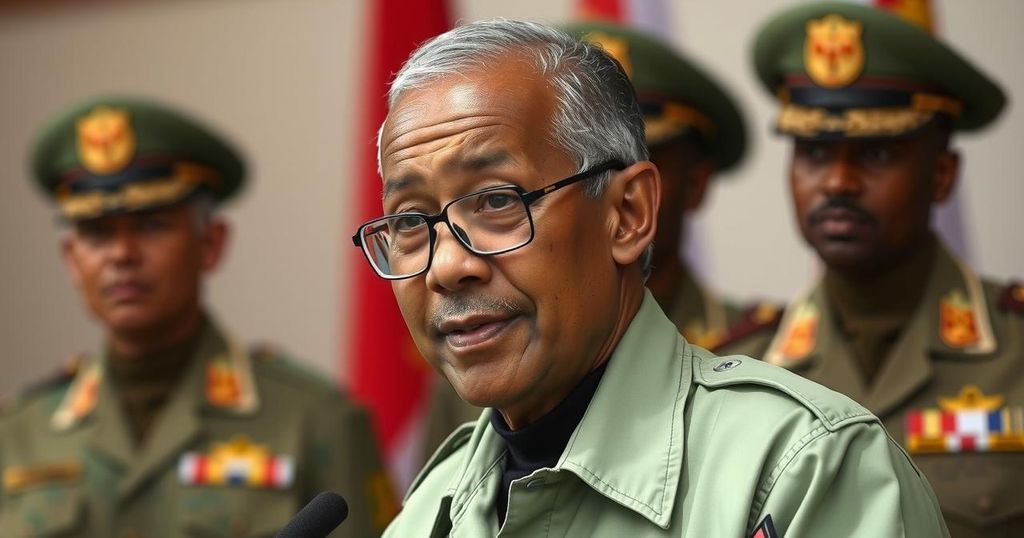Chad Votes Amidst Low Turnout and Opposition Boycott in General Election

Chad voted in a general election amid a military rule, with low turnout due to opposition boycott calls. President Deby urged participation, declaring the day historic. Opposition leaders claimed results were predetermined as citizens expressed skepticism about the voting process. Higher turnout was reported among military voters despite claims of ballot irregularities, highlighting a complex transition towards democracy.
Chad held a general election on Sunday aimed at culminating its three-year military rule, although voter participation was projected to be low. Midday reports indicated a turnout of only 38 percent amidst calls for a boycott from the opposition, who allege that the election results were predetermined. President Mahamat Idriss Deby Itno, who assumed power through military means in 2021, encouraged citizen participation, proclaiming the day as historic. Opposition leader Succes Masra insisted that their protests were successful, stating that the majority of voters stayed home due to disillusionment with the electoral process. In counter-narratives, government officials cited the cold weather as a primary cause for low voter engagement.
Many citizens expressed skepticism about the voting process. For instance, Patrice Lumumba Deoumoundou, a 39-year-old unemployed man, emphasized his hopes for systemic change but noted, “Nothing’s been done yet.” In contrast, reports from the election management agency claimed higher turnout rates among military and nomadic voters, with 72% and 54% respectively. Meanwhile, reports of ballot irregularities came from opposition parties, which drew attention to a missing batch of ballots from Bongor.
As security looms from ongoing Boko Haram conflicts and domestic political instability, the government characterized the elections as a pivotal transition toward democracy, following President Deby’s ascent after his father’s death in 2021. Polling stations were under close scrutiny from international observers, indicating a tense atmosphere as citizens weighed the future of their governance against their frustrations with a protracted military presence in politics.
Chad has been under military rule since General Mahamat Idriss Deby Itno took power in 2021 following the death of his father, who ruled for three decades. This election was presented by the government as a critical step towards establishing a democratic political landscape after years of military governance. However, the opposition has voiced strong concerns regarding the legitimacy of the election, urging voters to boycott, while emphasizing that the outcomes might already have been decided before the polls opened. This scenario reflects a broader trend of political disillusionment among citizens, who have experienced ongoing economic challenges and insecurity driven by extremist violence in the region.
The recent general election in Chad appeared to be a reflection of deep voter discontent with the political system established after military rule. While the government promoted the vote as a means to transition toward democracy, significant portions of the populace opted to abstain, pointing towards entrenched skepticism regarding electoral integrity. As Chad grapples with numerous challenges, including security threats and socio-economic issues, the road ahead may determine the nation’s democratic hopes and the stability of its governance.
Original Source: www.myleaderpaper.com







